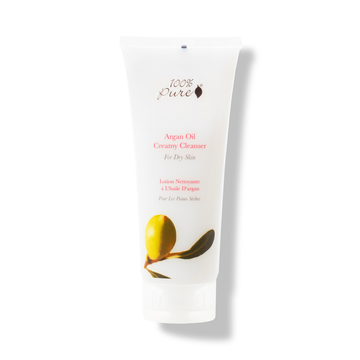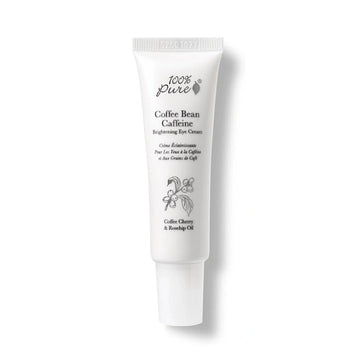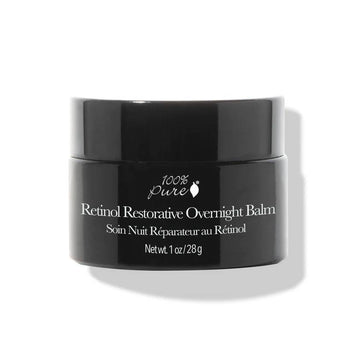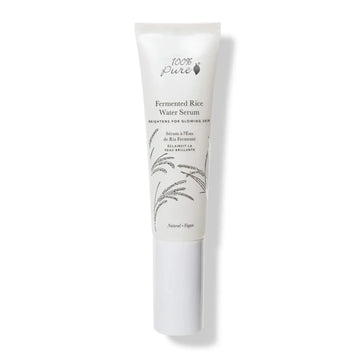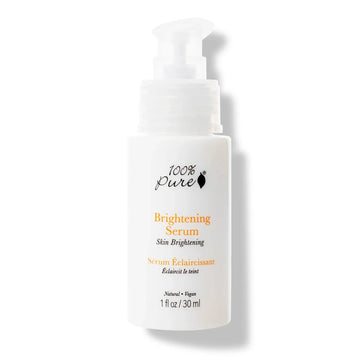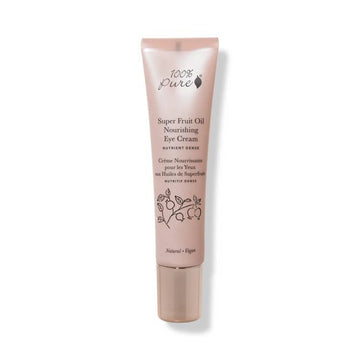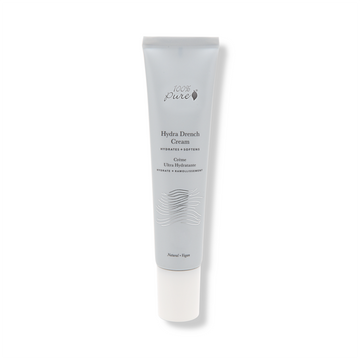Keep your routine up to date while learning to repair seasonal damage
Written by: 100% PURE®
Spoiler alert: your skin care routine that’s been signed, sealed and delivered isn’t a year-round deal. As the sender, let’s just say Mother Nature has a lot to do with that. Just like this queen of weather has you switching out your wardrobes each season, you should be changing up your skin care routine to match – in order to better protect your complexion against the elements.
The good news is that all your seasonal products don’t have to become a return to sender. With a few minor adjustments to your routine, you’ll be welcoming any new season with open arms.
We’re sharing how to customize your routine to target specific skin care concerns depending on the time of year, and which vitamins and nutrients can aid in repair after each season ends.
While the seasons have their perks (some more than others) changes in climate and weather can wreak havoc on your skin. Whether you have sensitive or acne-prone skin, your dermis can be affected by seasonal changes in the weather, especially with harsh winter conditions or blistering summer sun.
What’s the best way to halt the multiple causes of damage from weatherly woes, while promoting repair from the past season? By using concentrated potencies of the vitamins and nutrients we’re about to introduce, you can help target skin that’s experiencing SAD from seasonal changes.
SPRING
Spring showers bring beautiful flowers – but lots of pollen! This cross-pollinating powder gets kicked around by wind and spares no mercy on allergies. Pair that with unrelated seasonal allergies and the weather finally warming up, trouble could be in store for your skin.
Research shows that adding a concentrated potency of Coenzyme CoQ10 can be beneficial for repair in your skin care routine. Loss of moisture and inadequate defenses can be a side effect of the elements, and CoQ10 can help! To summarize its effects, research suggests that “applying CoQ10 directly to the skin can reduce the damage from internal and external agents by increasing energy production in skin cells and promoting antioxidant protection.”
Aside from swapping out your heavier winter products for lighter formulas, you’ll need to introduce anti-inflammatory products that will help to reduce skin redness, itchiness, and inflammation from pesky allergies.
Our Argan Oil Creamy Cleanser is infused with skin-soothing CoQ10 and nourishing antioxidants. This creamy-gel formula gently cleanses and calms skin without stripping it of essential moisture. Combine it with our Coffee Bean Eye Cream to soothe puffy eyes and an allergy-inflicted eye area.
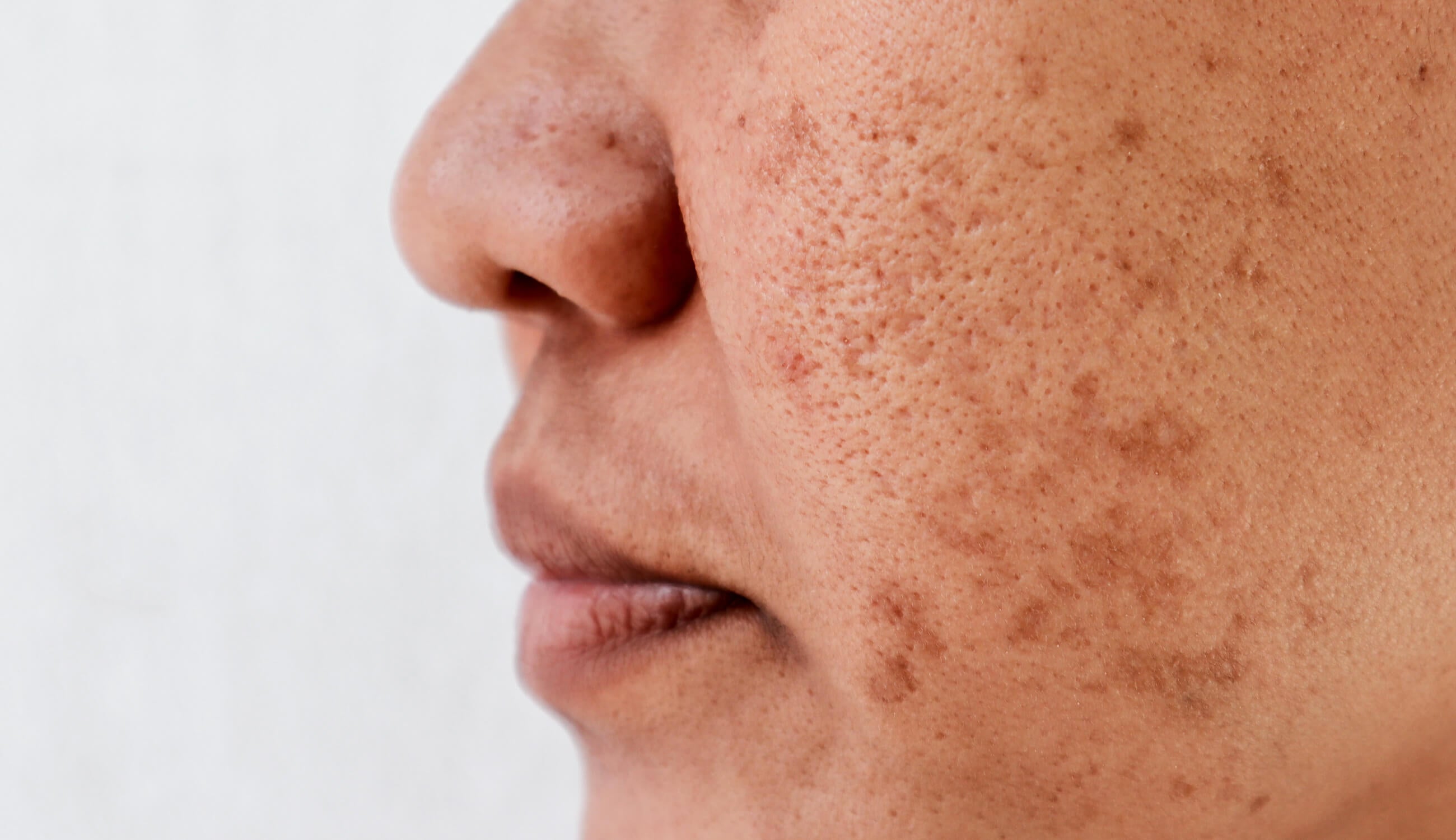
SUMMER
Though summer brings half-day Fridays and long weekends at the beach or pool, there IS a downside to this seemingly perfect season: UV damage! Since there’s no such thing as a healthy sunburn, you’ll want to slather on SPF – and reapply it regularly – to protect your skin from UV damage and its associated skin symptoms.
If your skin is still affected by sun damage in the form of dark spots and freckles, a worthy skin care adversary is retinol. This vitamin A derivative is not only an antiaging all-star, it’s great at fading dark spots and repairing photo-damage.
Skin is best at rest for repairing itself, which is why our Retinol Restorative Overnight Balm is ideal for your beauty sleep. This nighttime formulation features a potent powerhouse of retinol by using vegan retinol and beta carotene, which support balanced tone and a more luminous complexion.
FALL
The scarf-and-boot season is the perfect time to swap out lightweight summer products for more moisturizing alternatives. But even with its near-perfect temps, autumn still isn’t fall-proof when it comes to skin.
While summer brings humidity to moisturize skin and bolster the skin barrier, fall brings cooler weather and lower humidity. This means dry air – and even drier skin. The best nutrient to repair summertime sun damage and promote healthy hydration is vitamin C.
Vitamin C is great at boosting glow and dewiness, while retaining moisture as temperatures drop and winds rise during the fall. To keep skin looking radiant long after summer ends, our Fermented Rice Water Serum can help even skin tone and lessen the appearance of dark spots.
Since your skin is best able to rejuvenate itself in the evening, our Brightening Serum is a PM formula that uses gentle fruit acids to resurface dull skin and reveal a gorgeous, glowing complexion.
Newsletter Subscribe
for more blog updates and exclusive discounts

WINTER
These brisk and brutal months are when moisture and hydration become your skin’s closest allies. With blustery winds and lower levels of humidity in the air, your skin is prone to dryness, flakiness, and itching. Add elements like stuffy indoor heating and fireplaces and the cold months can create absolute havoc on your skin.
The good news is you can nip those winter blues in the bud with heavier formulas, especially those featuring vitamin E. As one of the most popular vitamins for skin, this antioxidant is extremely nourishing and combats nearly all wintery ravages on your skin.
Since your eyes are one of the most regularly exposed areas during the winter months, our Super Fruit Oil Nourishing Eye Cream can help to soothe and moisturize your eyes. Powerful antioxidants and reparative vitamin E can also help to lessen the appearance of lines and wrinkles.
To complete your moisture support team, cycle in the Hydra Drench Cream. This lotion uses plumping chia seed gel, hyaluronic acid, sodium PCA, and nopal cactus to boost hydration while repairing and replenishing thirsty cells.
It can be tricky to know how to dress as the seasons begin to change – so it should come as no surprise that your skin care routine will also undergo a transitional period. But congratulations: you’ve learned how to transition your skin routine to target specific seasonal symptoms! Now you can focus on ways to repair symptoms that have overstayed their welcome, to guarantee your skin stays healthy without missing a beat.
How Does Skin Care Need to Change with the Seasons?
- Winter: In colder months, skin often becomes drier due to lower humidity levels and indoor heating. Use heavier moisturizers and consider a humidifier to maintain skin hydration.
- Summer: Heat and humidity increase oil production and sweating. Lighter, non-comedogenic (non-pore-clogging) moisturizers are preferable. Increase cleansing to remove sweat and oil build-up.
- Spring/Autumn: These transitional seasons might require a balance between heavier and lighter skincare products. Pay attention to how your skin responds to changing temperatures and adjust accordingly.
What Are the Best Moisturizers for Different Seasons?
- Winter: Cream-based moisturizers with ingredients like hyaluronic acid, glycerin, and ceramides are effective for retaining moisture.
- Summer: Gel-based or water-based moisturizers that are lightweight and absorb quickly are ideal. Look for products with hyaluronic acid or aloe vera.
- Spring/Autumn: Depending on your skin type and the specific conditions (more humid or dry), you might switch between lighter and heavier moisturizers.
How Can You Protect Your Skin from Seasonal Allergies?
- Keep your skin barrier strong with regular moisturizing.
- Use hypoallergenic skin care products to reduce the risk of irritation.
- After being outdoors, cleanse your skin to remove allergens.
- Consider using an air purifier in your home to reduce allergen exposure.
- If your skin is particularly sensitive, consult with a dermatologist for personalized advice.
What Sun Protection Strategies Should Be Used Year-Round?
- Use a broad-spectrum sunscreen with at least SPF 30 daily, even on cloudy days, as UVA/UVB rays can penetrate clouds.
- Reapply sunscreen every two hours when outdoors, and after swimming or sweating.
- Wear protective clothing, hats, and sunglasses when exposed to the sun.
- Seek shade during peak sun hours (usually 10 a.m. to 4 p.m.).
How Can You Manage Seasonal Skin Conditions Like Eczema or Rosacea?
- Eczema: Keep the skin moisturized with fragrance-free emollients, especially after bathing. Avoid triggers like harsh soaps and fabrics that irritate the skin. In dry seasons, use a humidifier.
- Rosacea: Avoid triggers known to exacerbate rosacea, like extreme temperatures, spicy foods, alcohol, and stress. Use gentle skin care products and sun protection. During flare-ups, topical treatments prescribed by a dermatologist can be helpful.
- Tags: February-2024, Skin Care, skincare, Wellness
We carefully hand-select products based on strict purity standards, and only recommend products we feel meet this criteria. 100% PURE™ may earn a small commission for products purchased through affiliate links.
The information in this article is for educational use, and not intended to substitute professional medical advice, diagnosis, or treatment and should not be used as such.












